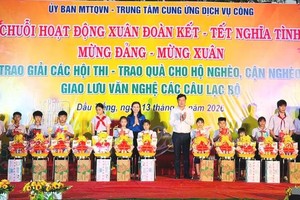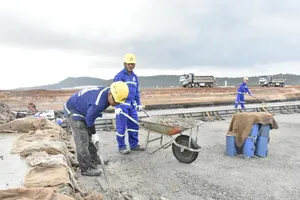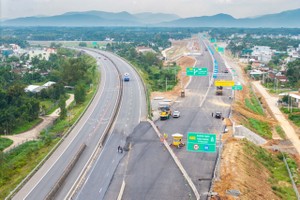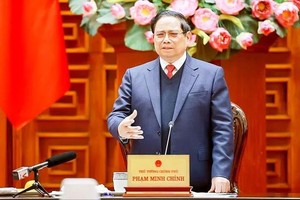
Today, the National Assembly conducted a plenary session where it received a presentation and evaluation of the suggested modifications to the national land use plan for the years 2021-2030, which includes a long-term perspective extending to 2050. The National Assembly’s Economic Committee endorsed the necessity of revising the national land use plan, referencing the justifications and specifics outlined in the Government's report.
Minister of Natural Resources and Environment Do Duc Duy, while presenting the Government's proposal, emphasized that the recent execution of national land use planning has been significantly affected by various economic and social factors. These include the intricate developments stemming from the Covid-19 pandemic, military conflicts in certain global regions, fluctuations in the global economy, climate change, alterations in global supply chains, and the ongoing trends in digital transformation and green economic development.
Since 2021, in an effort to promote economic and social recovery in the aftermath of the Covid-19 pandemic, the Party Central Committee, the National Assembly, and the Government have rolled out a range of fiscal and monetary policies aimed at bolstering the socio-economic recovery and development agenda. This initiative also includes the speeding up of key national projects, especially in the areas of infrastructure and energy, many of which were not part of the initial medium-term public investment plan from 2021 to 2025.
In addition, when the National Assembly ratified the national land use plan in November 2021, the comprehensive national plan, along with sectoral and provincial plans, was still in the process of development and had not yet been completed.
Consequently, ministries, agencies, and local governments faced challenges in accurately determining their land needs for incorporation into the national land use plan and its associated planning. Once these plans receive official approval, the actual land demand may vary.
Based on the above-mentioned objective and subjective reasons, it is crucial to make adjustments to the national land use planning to secure land resources for national defense and security, uphold stable land resources for rice cultivation to guarantee national food security, enforce strict management of forest land, and preserve forest cover to safeguard the ecological environment, address climate change, and attain sustainable development objectives.
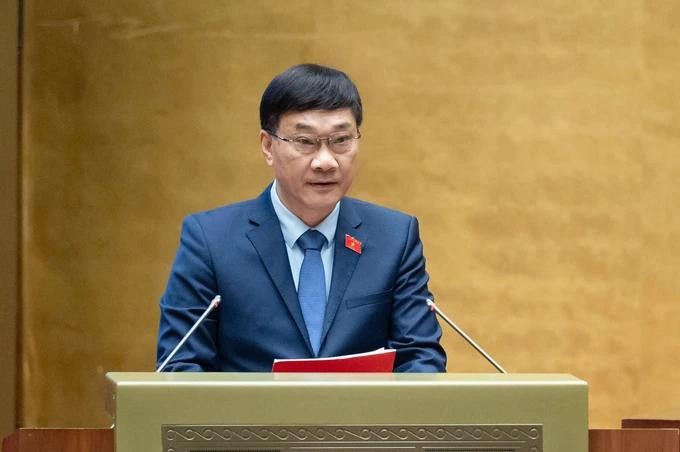
During the review, Chairman Vu Hong Thanh of the Economic Committee expressed that the Government's proposal to the National Assembly for the adjustment of the national land use plan is fitting in terms of authority. It aligns with the National Assembly's call to reassess, modify, and supplement land use indicators in the national land use plan for the period 2021-2030, with a vision to 2050, as well as the 5-year land use plan 2021-2025, to meet practical needs, especially considering the country's preparations to execute several significant national projects such as the North-South high-speed railway project.
Consequently, the reviewing authority concurs with the government's recommendation to amend the national land use plan.
However, Chairman Vu Hong Thanh noted that the information contained in the accompanying documents is lacking as it has only been revised up to December 31, 2023. As a result, numerous targets established by the National Assembly in the Resolution No. 39 have not been fully achieved, with some remaining unmet entirely, and there are discrepancies in the distribution of targets versus the capacity of local authorities to fulfill them.
The Economic Committee recommended that the government should conduct a comprehensive analysis and evaluation to clarify the underlying causes and propose solutions aimed at enhancing the effectiveness of the planning implementation.
Furthermore, the Economic Committee advised the Government to evaluate the impact of existing policies and legislation on the attainment of land use objectives. It emphasized the importance of ongoing assessments to comprehend the rationale behind suggested modifications to land use planning targets, ensuring these changes reflect actual requirements. The committee also recommended the enhancement of data accuracy and reliability.
Moreover, it called for a clear explanation of how proposed changes to the land use plan will influence urbanization and infrastructure growth. Lastly, the committee urged a comprehensive examination of local land requirements and the formulation of appropriate allocation strategies.
Simultaneously, the Economic Committee underscored the importance of ensuring that the planning and adjustment process aligns with the strategic goals of the Party and State. These encompass the preservation of rice-growing areas, the conservation of forest cover, the provision of adequate housing and production land for ethnic minorities, and the allocation of land for climate change adaptation, including addressing landslides, flooding, and land accretion.





